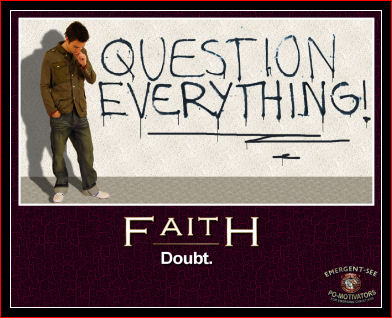Short post this week, at least for starters. And probably for keeps, though we'll see.
- Singing the same tune we sing here, and singing it excellently: Lyndon Unger over at Cripplegate sketches out a list of very Bibley reasons why we must go to church.
- In case you missed it, you'll appreciate Gurnall's thoughts on how we really should see glib, popular false teachers.
- Very thoughtful fivefold word to famous pastors from Todd Pruitt.
- The well-nigh indispensable Lyndon Unger offers discriminating, Bibley thoughts about angelic visitations. The graphics alone are worth the price of admission...or more!
- Proving the Iniego Montoya Principle — that, while people should use words according to their proper meaning, sometimes they don't: an "evangelical" megachurch caves to the homosexualist agenda.
- Moving Carl Trueman to observe that "If a major collapse is to be averted, we need strong, vocal leadership from the leaders of Christian institutions -- denominations, liberal arts colleges and the like."
- Trueman adds, truemanically: "And that sentence sums up why I am so pessimistic."

Gr8 to see @tgc continuing to focus on centering essentials: saving face for old-earthers and charismatics, and trashing dispensationalists
— Dan Phillips (@BibChr) January 29, 2015
- Justin Taylor labors hard to save face for those who doubt that the six days of creation were, well, six days of creation.
- As is often the case, the real value of the post is in those written to counter it, such as this post by DBTS' Ben Edwards, and this one by Paul Taylor.
- Best-title award (though not best-post; author is "not committed to a young earth") goes to Biblical reasons to doubt Justin Taylor's doubts about the creation days being 24-hour periods.
- All of which prompted Fred Butler to make a great suggestion to Janet Mefferd:
@BartMcCurdy @JanetMefferd @BibChr You should invite Justin to come on your show & explain himself.
— Fred Butler (@Fred_Butler) January 29, 2015
- Indeed, Christopher Ames hits very hard at the "We need prestige desperately" impulse that seems to drive many Top Men and their attendants.
Is now the right time to say I wouldn't recommend readers go on Justin Taylor's blog after what he did to Genesis? #wowthatfeltgood
— Janet Mefferd (@JanetMefferd) January 30, 2015
- Things I Wonder: does Christianity Today have an Invention-of-squeakingly-self-important-angsty-titles Department?
- It was great seeing all of you who supported the Sufficient Fire conference by coming last week. Phil, Frank, and I had a wonderful time bringing the word and meeting you all. David Regier was there and gave me a gift by providing his expert mad piano skilz as I sat at the (excellent) visiting musicians' drum set. David's a pro; I never was, and haven't touched a drum set in probably 5 years or more. But here is the part that Bill O'Neill — who travelled all the way from Vermont — captured:
- To quote the late great Terry Kath, for my part of it, "It was fun! I don't know about anything else."
- It was a terrific time, overall. Phil and Frank's talks were tremendous, the mood was joyous, and the fellowship was choice. Josh Feinberg organized the whole with many wonderful volunteers helping him. Praise God that overall, the event itself was a...
- People who did not come ask if the sessions will be online. They are not at present. I'll let you know if that changes. But if you want to support what we did and would like to support our making it available, contact Josh Feinberg. He'll show you how.
How did Jesus repel Satan? Hint: it wasn't by saying "I kinda feel God speaking to my heart and saying 'Dude, no.'"
— Dan Phillips (@BibChr) January 30, 2015































